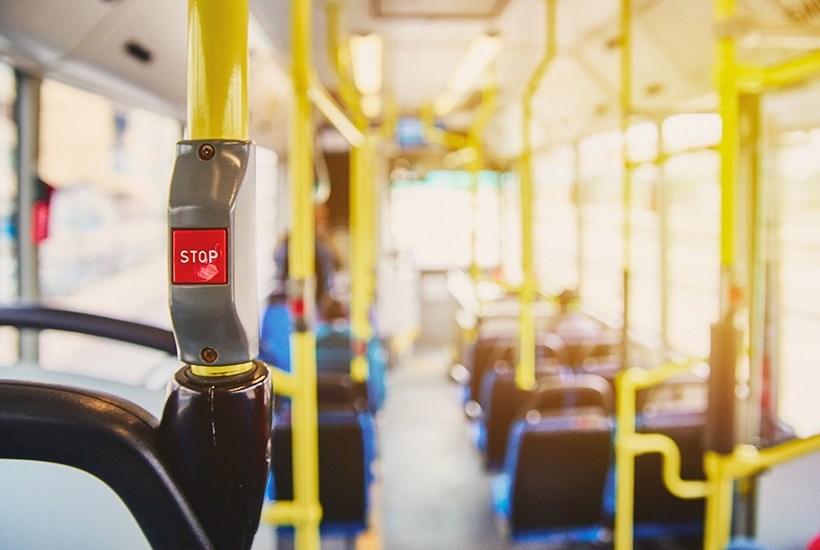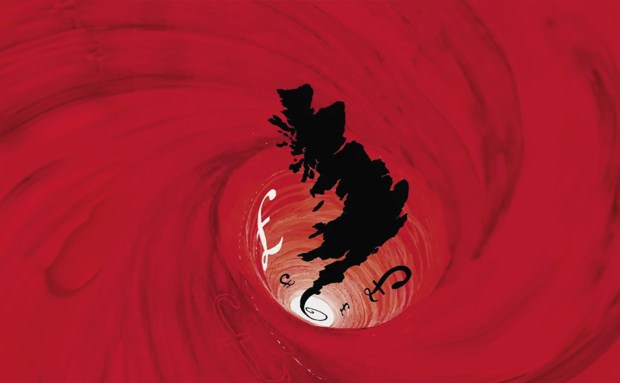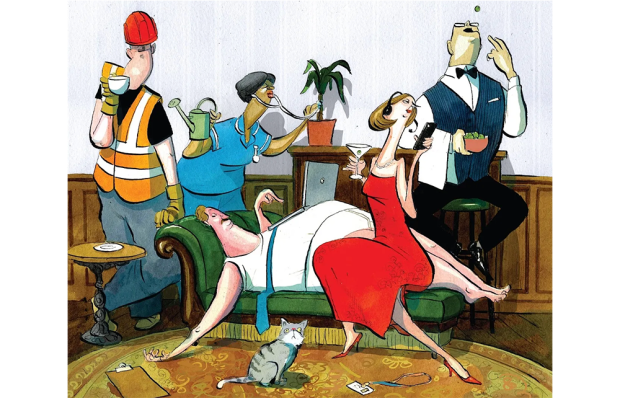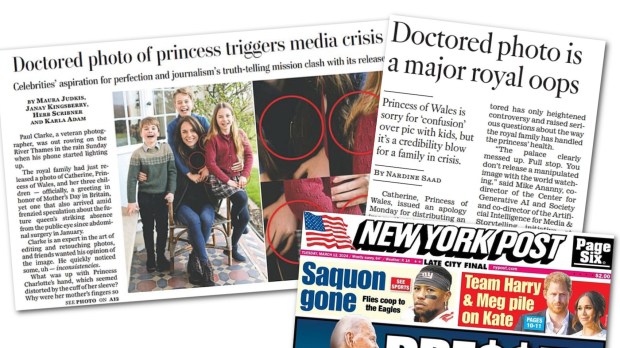‘If anybody can write an interesting column about buses, Matthew,’ the then comment editor on the Times told me decades ago, ‘it’s you. And you’ve failed.’ Here goes again, because the government has just published an energetic 84-page report outlining a strategy for the future of English bus services. There’s even an affectionate foreword by Boris Johnson. Buses deserve our attention. Trams are newly fashionable but eye-wateringly expensive and in many ways, being less flexible, slower and more dangerous, a regression from buses.
Many of the recommendations in Bus Back Better are sensible, though there’s the usual infestation of acronyms, consultations and new structures. Its analysis of what puts passengers off does shine a light on things we could change. But the document suffers from one big blind spot. It averts its eyes from a problem so central that complaints about misleading timetables or the lack of single-journey-multiple-carrier ticketing systems, etc., are mere quibbles by comparison.
Buses are uncool. That’s the double–decker in the room. Going by bus is so often what people resort to if they have no access to a private car and can’t afford a taxi. Here, for instance, is our own Rod Liddle in last week’s Sunday Times. ‘I cannot remember what a bus looks like. I live in the country and haven’t seen one for years. Big slow things full of poor people, as I vaguely recall.’
Plenty of Spectator readers might bridle at that. I do, loving buses both in London and in the country. In rural Derbyshire I’m sometimes the only person on Hulleys’s excellent 172 service from Bakewell to Matlock through the villages. But the sad truth is that, however rudely, Rod does touch on something. If you stand at a village bus stop and a passing motorist recognises you as a local, you will often be offered a lift. ‘Poor old thing, having to stand out in the cold and wait for a bus. Doesn’t he have a car, or relatives?’
The decline in the social status of the bus passenger, linked with growing car–ownership, is what, more than anything else, has driven the relentless decline in people taking buses. We still make four billion bus journeys every year, twice as many as by rail; but passenger numbers decline, services and routes become unprofitable, fares are increased, and this in turn drives numbers down further. As routes are cut, for many communities private cars become a must.
The argument for subsidising lower fares and uneconomic services then gains ground, and we do do this in Britain. We spend billions, and have for years; and it undoubtedly helps slow the decline, while concessionary bus travel will have greatly mitigated what would otherwise have been an even steeper decline. But if I am right, and social change is the underlying cause, subsidy will cushion but never permanently reverse decline. And the subsidy will have to keep growing.
The Department for Transport’s paper seems unwilling to explore this bleak argument. Instead (in keeping with the boosterish levelling up now all the rage in Downing Street), it energetically seeks something to blame that can be remedied. It places a huge share of the blame on Mrs Thatcher’s 1986/87 bus deregulation legislation. I sat on the standing committee. The measure stopped local government outside London from doling out bus routes as monopolies, then awarding franchises to single companies. ‘Bus wars’ between competing providers followed, but soon faded. The new golden era of deregulated bus abundance that we Tories predicted never came to pass. The collapse of bus travel in England that Labour predicted never happened either. The industry continued its steady decline.
These new proposals hardly mention competition, except disparagingly, and make for a surprisingly socialist analysis, putting operator commissioning back into the hands of local government and a rather bewildering array of consultative arrangements. Broadly, the main proposals are to reverse the 1986/87 deregulation.
To recommend this, you have to maintain that deregulation started (or enormously accelerated) the rot. A graph recording bus use in England outside London, published on page 21 of the document, might appear to do so. Unfortunately the graph is misleading. It only starts in 1982 — fair enough, because that’s when England’s figures began to be recorded separately from the rest of Great Britain. From that date, ridership goes slightly upwards for just a few years, then (as it passes a line marked ‘bus deregulation’) takes a steep dive, and carries on downhill until 2019. This gives the impression that deregulation clobbered bus use.
I have looked, however, at the closest I can find for comparable figures before 1982. They are for local bus ridership in the whole of Great Britain outside London. There was indeed a short pause in the decline between 1982 (where the Transport Department’s graph begins) and deregulation, but the decline is steepest in the 1970s, remains steep long before and long after deregulation, and moderates around the turn of the century into the gentler decline we saw before Covid-19. If you were to study the long-term graph without knowing when deregulation took place, you couldn’t tell. It appears to make no difference one way or the other.
So back to the problem. Buses are uncool, in large part because travelling on one often means you don’t have access to a car. But we’re approaching an age when car ownership won’t matter, cars are driverless, and summoned. It’s a bit early for the summoned bus, but I believe it will come. There are economies of scale, cost and convenience in large fleets of small buses that serve broad routings, allowing flexibility to divert to pick-up points in response to phone apps. Inter-urban routes (often still profitable) would thrive with increased, often untimetabled frequency. Within cities buses will be free, paid for by stiff charges on private cars.
Good for Boris for caring about buses. Two cheers for a Transport Department that’s trying to think it through. Now for the double-decker in the room.
Got something to add? Join the discussion and comment below.
Get 10 issues for just $10
Subscribe to The Spectator Australia today for the next 10 magazine issues, plus full online access, for just $10.
You might disagree with half of it, but you’ll enjoy reading all of it. Try your first month for free, then just $2 a week for the remainder of your first year.















Comments
Don't miss out
Join the conversation with other Spectator Australia readers. Subscribe to leave a comment.
SUBSCRIBEAlready a subscriber? Log in